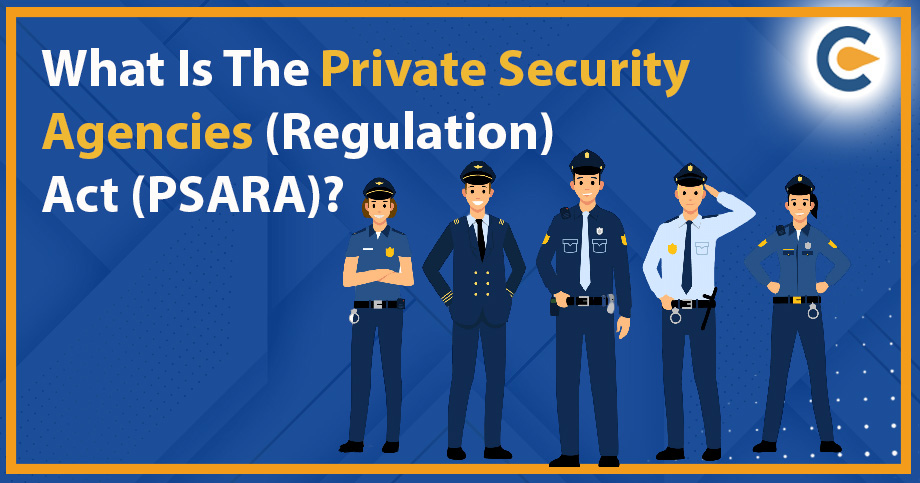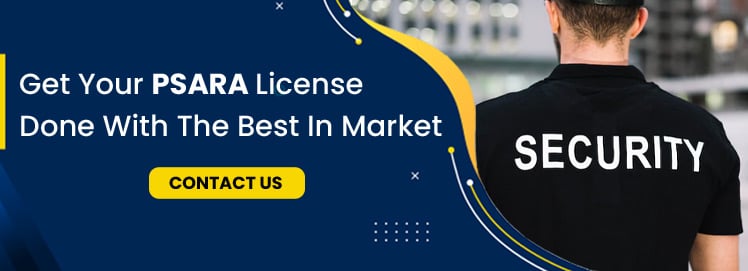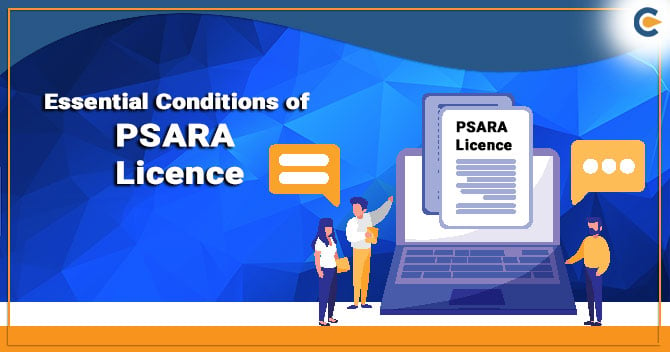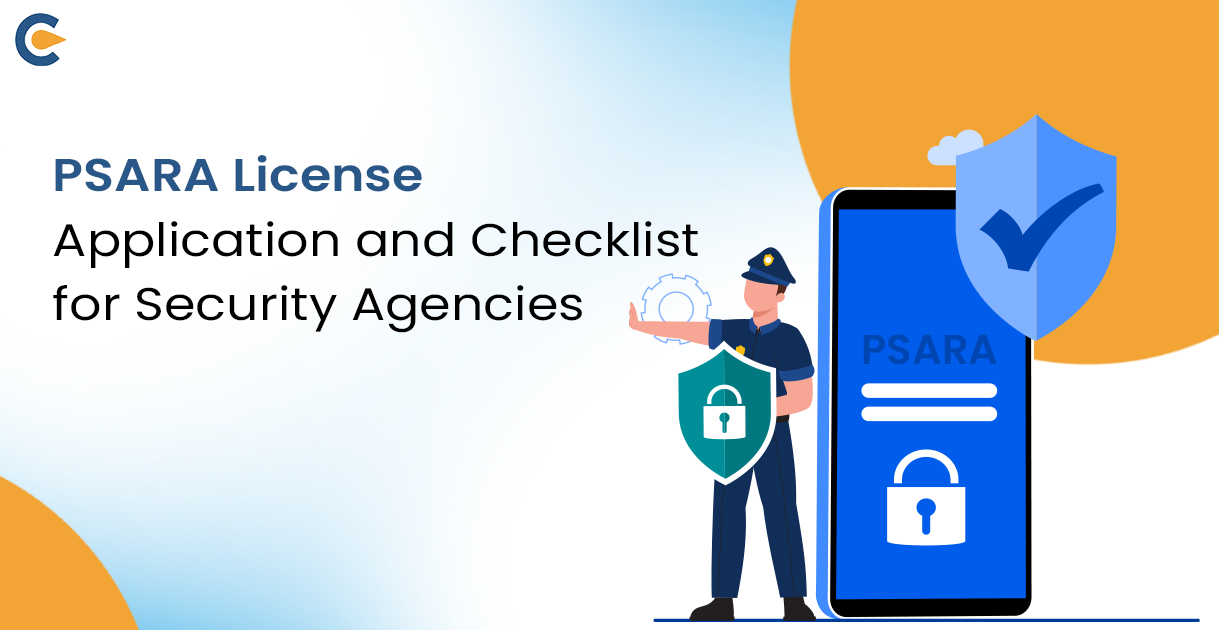This Act will examine and insight into all the legal requirements of the Private Security Agencies (Regulation) Act. In the society in which we currently live, many people are starting their enterprises, which has provided the scope for the rapid rise in the commercial space of small business entities and has also resulted in the need for security and safety. This has resulted in the establishment of numerous private security agencies to meet the security needs of both individuals and corporations; agencies are businesses that specialise in teaching and providing security services. In India, all the operations and activities of the various private security agencies fall under the Private Security Agencies (Regulation) Act, 2005 (PSARA). The Act came into force on June 23, 2005.
The subject ‘welfare of labour’ is mentioned in the 7th Schedule under the Concurrent list. Article 246 of the Indian gives the state and the centre the right to make laws on the subject of ‘labour’.
E.g., The Private Security Agencies (Regulation) Act of 2005 – Enacted by the Union Legislature. Maharashtra Private Security Guards (Regulation of Employment & Welfare) Act, 1981- enacted by the state legislature.
Overview of Private Security Agencies (Regulation) Act
PSARA is the Private Security Agencies (Regulation) Act of 2005[1]. The legislation’s primary goal is to monitor such agencies’ activities and keep them from obstructing the nation’s system for maintaining law and order. The agencies offer training to people who want to work in security-related vocations and private protection services to people and organisations.
Key Feature of the Private Security Agencies (Regulation) Act:
- PSARA License: A Licence is a must for a security agency to operate its business.
- The Uniform worn by the private security guard: Private security guards must wear uniforms distinct from those of the Army, Navy, or Air Force members. The Uniform should include the following:
- An arm badge,
- A whistle attached to a whistle cord,
- Shoes with laces,
- A distinctive agency mark is displayed on the headgear.
- A photo identification card that a security guard should always carry during their shift.
- Training and physical fitness: The security guard employed must go through a training period of a minimum of 100 hours of classroom instruction & 60 hours of field training.
The Act expressly states that security guards must meet a bare minimum standard of physical fitness, which is as follows:
a. The height and weight of the security guard need to be within the standard table of height and weight.
b. A security guard should have clear vision, with or without the corrective lenses and should not have any hearing defects.
c. All security guards should get a medical exam done every two years while employed.
d. A Security guard shall not have any communicable disease or disease that makes the candidate unfit for service or jeopardises the public’s health.
- Legal compliance to be followed by the agencies: All security agencies must follow labour legislation to safeguard the rights of the security guards. The legislations are as follows:
- The Payment of Wages Act of 1936
- The Industrial Disputes Act of 1947
- The Minimum Wages Act of 1948
- The Employees’ Provident Funds & Miscellaneous Provisions Act of 1952
- The Payment of Bonus Act of 1965
- The Contract Labour (Regulation & Abolition) Act, 1970
- The Payment of Gratuity Act of 1972
- The Equal Remuneration Act of 1976
- The Inter-State Migrant Workmen (Regulation of Employment & Conditions of Service)
- Maintenance of the Register: All the security agencies are required to maintain a register containing all the information related to:
- Names, photographs, salaries, and addresses of security personnel employed by that agency.
- Details about the individuals or business entities to whom the agency provides security services.
What are the Guidelines to be followed by Private Security Agencies (PSA)?
Private Security Agencies (PSA) are required to abide by the guidelines mentioned under the Private Security Agencies (Regulation) Act, which are as follows:
- PSA needs to make sure that security guards are following the prescribed uniform policy,
- As per the Act’s provision, security agencies must appoint a supervisor to look after the subordinate security guards.
- The supervisors elected can be from the army, navy, or air force background having at least three years of experience; therefore must be given priority to hold the position.
What are the Eligibly Criteria to be a Private Security Guard under Private Security Agencies (Regulation) Act?
Section 10 of the Private Security Agencies (Regulation) Act, provides an elaborated listbe employed private security guards, which is as follows:
- A person needs to be a citizen of India or a national of any other nation that the Central Government may notify by official gazette,
- Has completed the age of 18 years but not above the age of 65 years,
- Has to satisfy the hiring security agency about his character in the manner prescribed,
- Has to meet the basic minimum standard of physical fitness that is mentioned under the Act.
- Has to meet the bare minimum physical fitness standard mentioned under the Act.
- Persons who have served in the army, navy, police and other union armed forces shall be given preference.
What is PSARA License?
The term license has been defined under Section 2(c) of the Private Security Agencies (Regulation) Act. According to the Act, it is a must for a private security agency to acquire a PSARA licence to provide its services to people or organisations.
The parties must first agree on the type of organisation. One of the following models can be used: sole proprietorship, partnership Firm, LLP, Private Limited Company or NGO.
Considerations for this choice should include scale, finances, liabilities, control, etc., and the district/state in which the agency will operate must be specified while filling out the application form under the Act. The application process and fees vary depending on the licencing area.
As defined under Section 7(5) of the Act, a PSARA License can only be used for five years after it is issued. Security companies must start their operations within six months of receiving a licence.
However, this licence is only valid for a year in Uttrakhand, Madhya Pradesh, and Chhattisgarh.
Section 8 of the Act talks about the renewal of the license. The license can be easily renewed after it has expired by submitting a renewal application 90 days before it expires and the renewal fee.
Necessary Documents required PSARA License
Following is the list of necessary documents that are required while applying for the PSARA license:
- PAN
- GST forms
- ESI and EPF Account details
- Papers showing the Registration of the company under the Shops & Establishment Act
- Labour license
- MSME/SME Registrations
- Certificate of Security Training from SKSDC or DGR
- Proof of ownership of the place of business
- A LOGO for the agency
- Identity Cards for the employees
- Associations with Controlling Authority nominated bodies
- Associations with Hospitals
- Details of all the employees
- Arm Licenses
- Character verification of employees
- Training Certificate for employees
- A uniform pattern, including caps and badges with four postcard-size photographs of the Uniform
(All Documents other than the affidavit must be attested by a public notary, and the affidavit must be attested by an Executive Magistrate.)
Process for getting a PSARA License
Following is the process for getting a PSARA License
- Documentation: Gather the documents that are required for obtaining PSARA License
- MOU: A Memorandum of Understanding (MOU) with a Government-Authorised training institute. The applicant must sign an MOU with a Government-Authorised training institute in order to train their security guards and supervisors.
- Police Verification: The applicant needs to apply for police verification by filing Form-I.
- Filing of PSARA Application: Submit the application to PSARA controlling authority that is located in every state. (The application will only be processed after a NOC from the concerned police authority is received.)
- PSARA License: On verifying the details, if satisfied, the Authority will grant a PSARA license or reject the application with a valid explanation.
Appointment of Controlling Authority by State Government
According to the Act, the State Government can appoint an officer of a Joint Secretary rank in the State Home Department or an equivalent officer as the Controlling Authority for the state. The Controlling Authority is in charge of issuing licences, renewing them, and is responsible for regulating the operation of private security agencies. Following receipt of an application, the Controlling Authority conducts whatever investigations it deems necessary. The concerned police authorities will issue a NOC. Once issued, the controlling Authority may either grant or reject the licence for a reason. The process takes about 60 days to complete.
Recent Developments Around the Private Security Agencies (Regulation) Act
The Private Security Agencies Regulation (Amendment) Act of 2019 established a Private Security Agency Licensing Portal that facilitates background checks, online licencing fee payments, and capabilities for e-signing and geo-tagging to streamline the licencing procedure under the Act.
Conclusion
It can be concluded that the private security industry (PSI) is advancing at an ever-increasing rate and continues to dominate citizens’ public and private spaces; thus, the centre has enacted the Private Security Agencies (Regulation) Act of 2005. The legislation’s primary goal is to monitor the activities of such agencies and keep them from impeding the nation’s system for maintaining law and order.
The Act clearly defines how the security guards will be appointed and how the security agencies will work. It also describes the eligibility for a licence, the application for a licence, the conditions for operation, and the appointment of supervisors.
Read Our Article: Know all PSARA License Requirements before Opening a Private Security Firm













